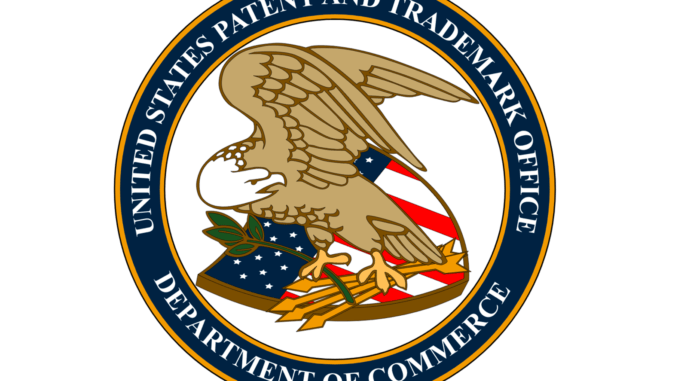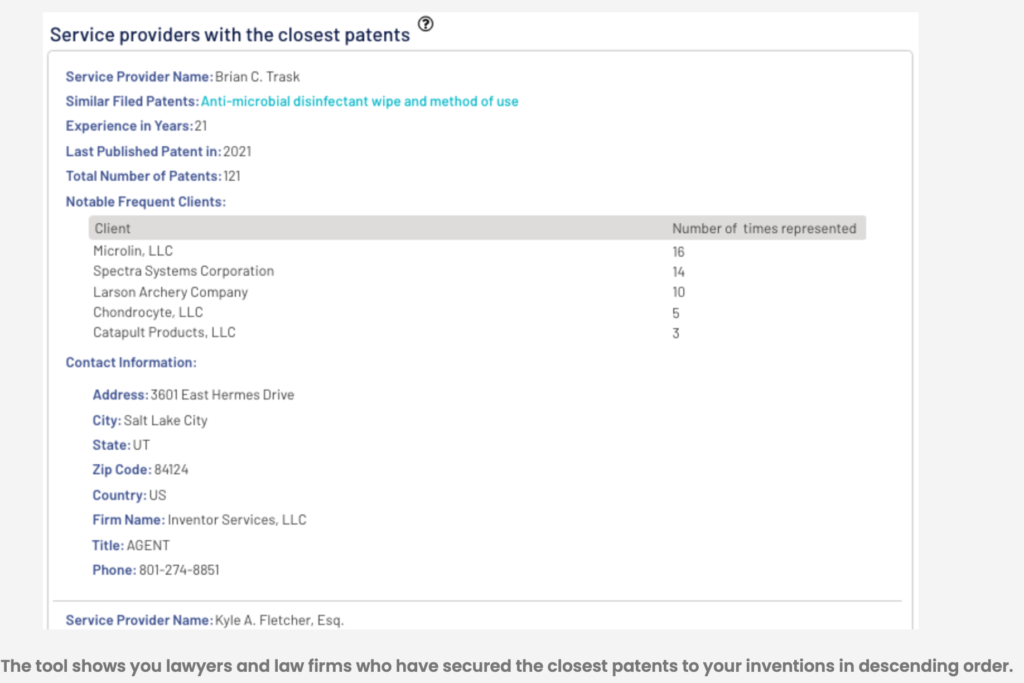
‘Inventors are from Mars, lawyers are from Venus’ say the creators of Patent Lawyer Finder, which uses NLP to search USPTO filings to match your new invention to a lawyer who has experience with very similar products.
It’s a nifty idea and could well be applied to other areas of the law. The developers also point out that traditional legal directories are problematic in this area because ‘listed specialties [in directories] are usually very broad [and] these specialties are self-claimed’.
As to how this works, the simple version is that they’ve trained up their NLP models using deep learning on US patents published since 2005. This allows you to quickly find a lawyer who has a good chance of already understanding what your invention is all about.

This matters because let’s say your invention relates to a very niche aspect of microbiology. You need someone who really understands not just biology or medicine in general, but is a patent lawyer and also understands the subtleties of your particular niche area. Such people will be hard to find. This tool is meant to solve that problem.
The tool has been built by Stacks, a team of developers focused on IP and data projects. This is how they explain things: ‘The Patent Lawyer Finder extracts the name of lawyers and law firms that have filed these patents. In the end, the tool shows the results as a histogram of highly active lawyers and law firms in the inventor’s field of invention and also gives the list of lawyers and law firms that have filed patents for the most similar inventions.’
And they add: ‘Even though inventors can file a patent on their own, hiring a patent lawyer is highly recommended to ensure that the invention is properly disclosed and protected. But not all patent lawyers are equally qualified to work on a technical invention. A patent lawyer must understand the technology, knows the field of the invention, and can identify the critical aspects of the invention to protect. Otherwise, inventors could end up with a weak or an invalid patent.’
This looks like a great idea, and presumably the same approach could be used for other areas of the law – at least where you can get hold of enough training material. And to some degree litigation analytics pioneers are already doing this, e.g. in relation to finding out what certain judges think about certain cases and legal arguments based on past court docs. But, could this be refined and used in more of a transactional setting, or added as an extra layer to an inhouse team’s KM capabilities, e.g. searching for key clauses in their contract stack in order to help find the law firm that drafted something similar to what they need now?
Behnam Kia, Stacks’ CEO, added: ‘Early in my career, I encountered this problem first-hand. It was also troublesome that there was no real empirical way to find or compare patent lawyers for a specific field of invention. Fortunately, in Stacks, we had the expertise and means to solve our problem, and now we are making this solution freely available for the rest of the community.’
All in all, looks like a great initiative. The next question is: where else will they apply this approach?